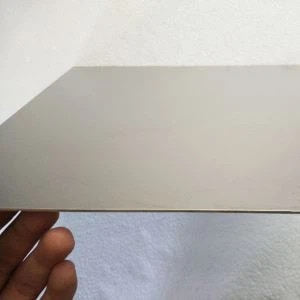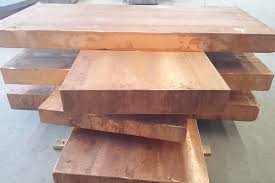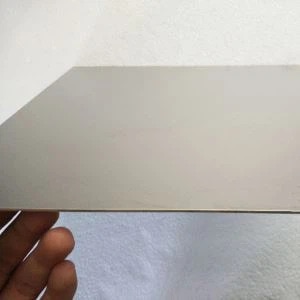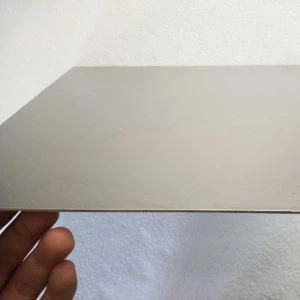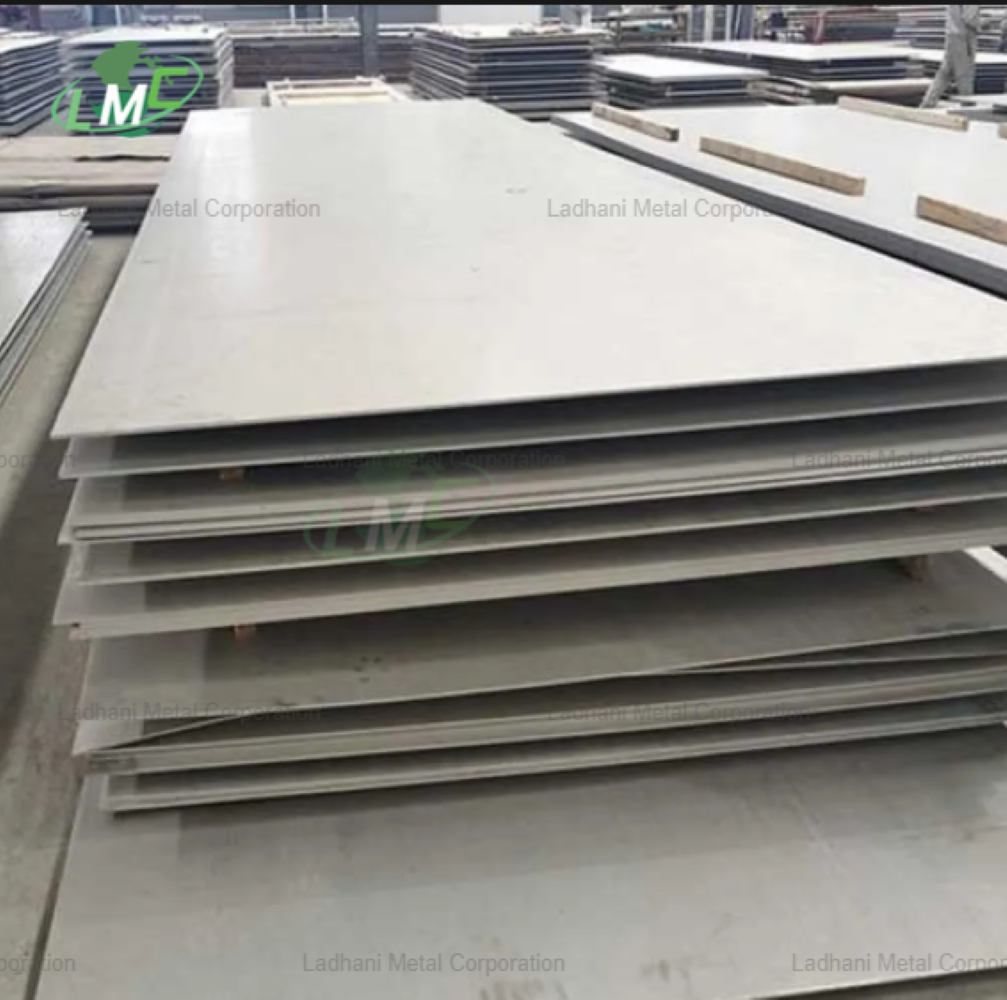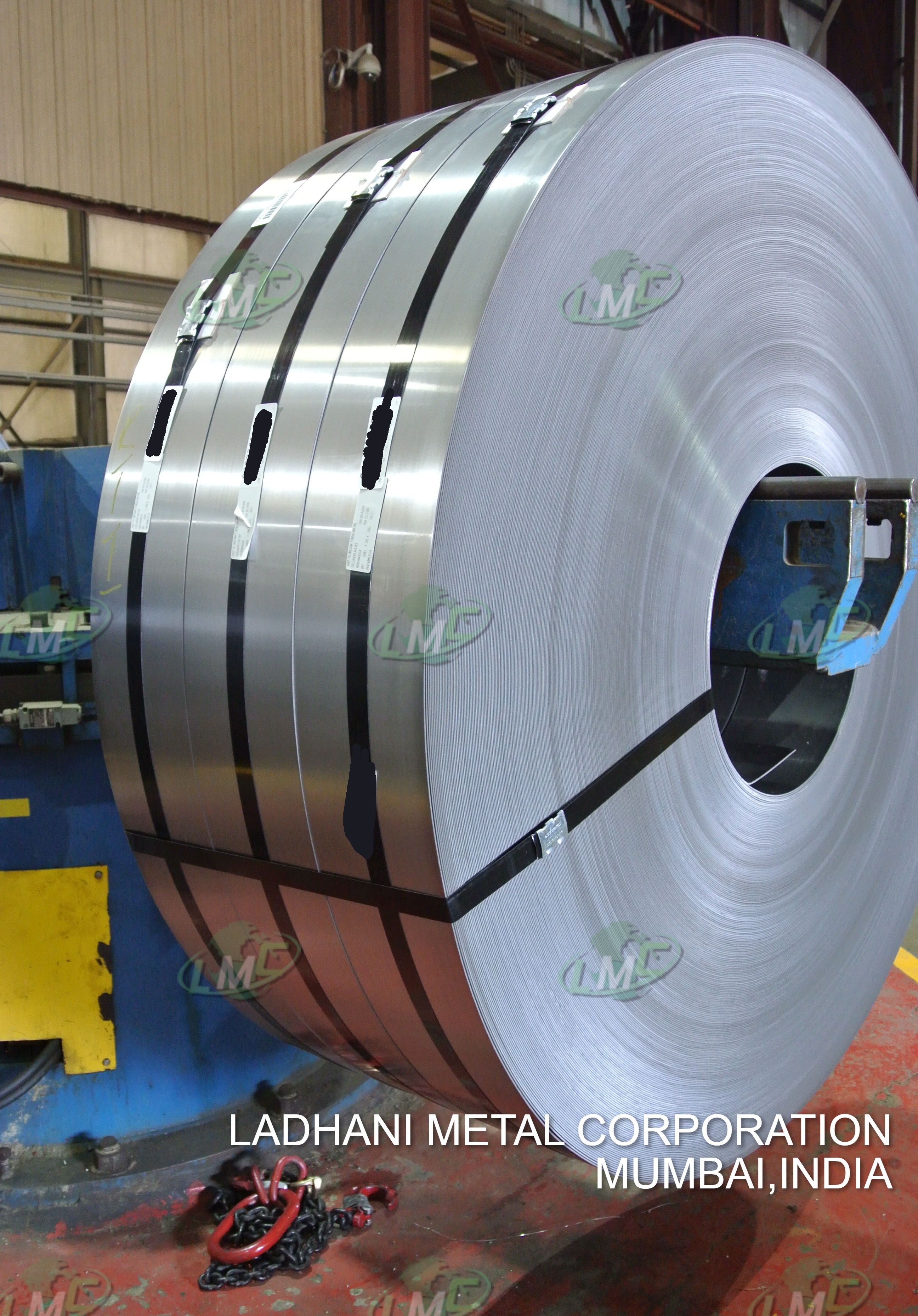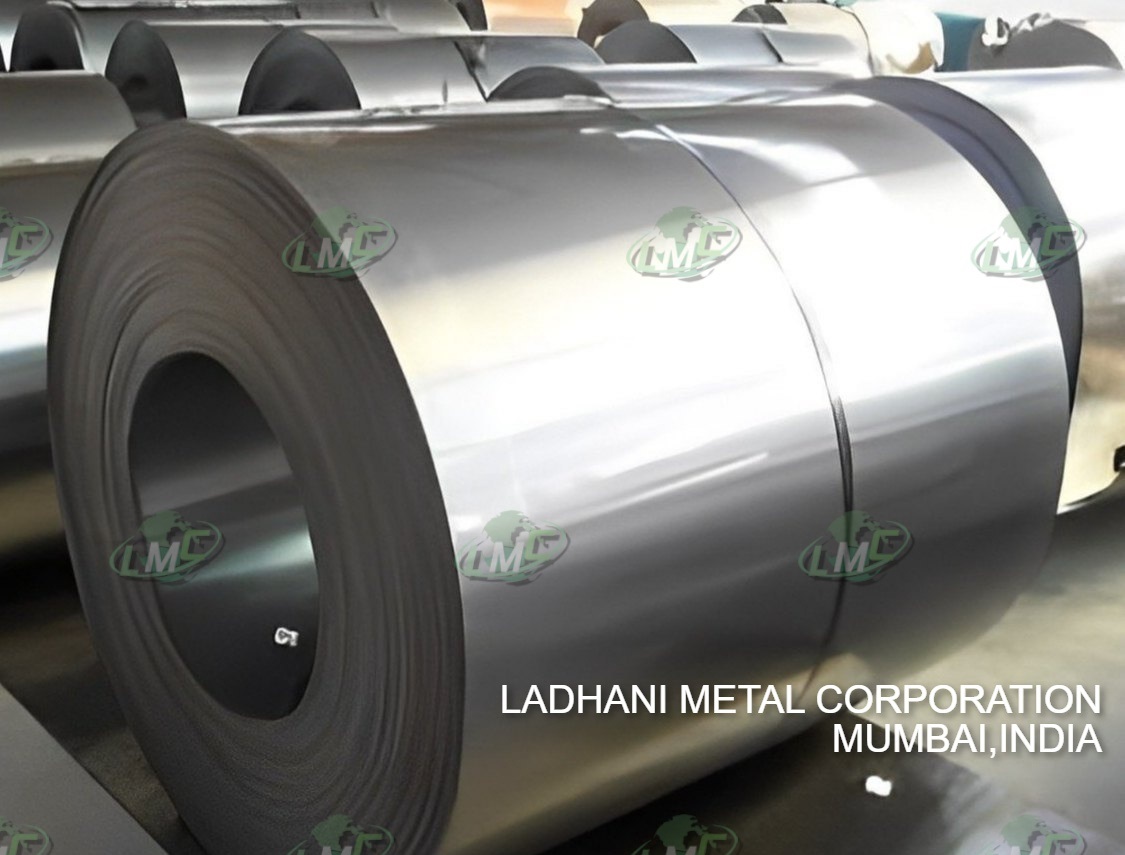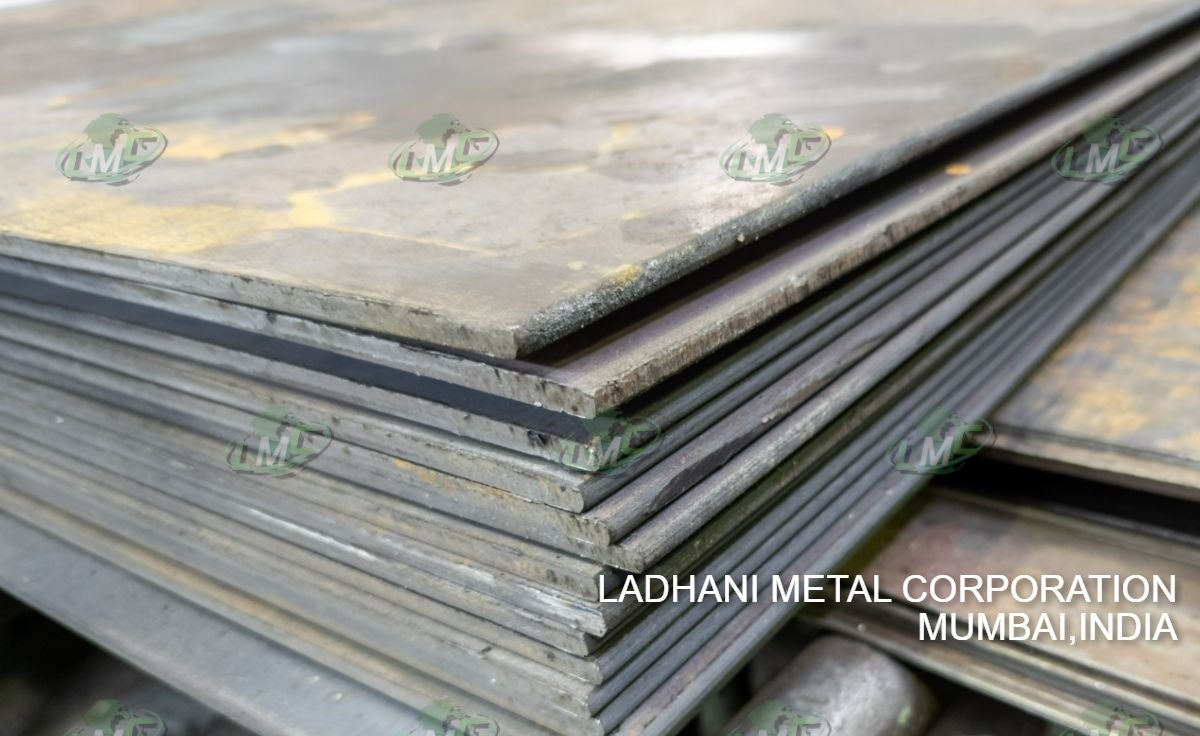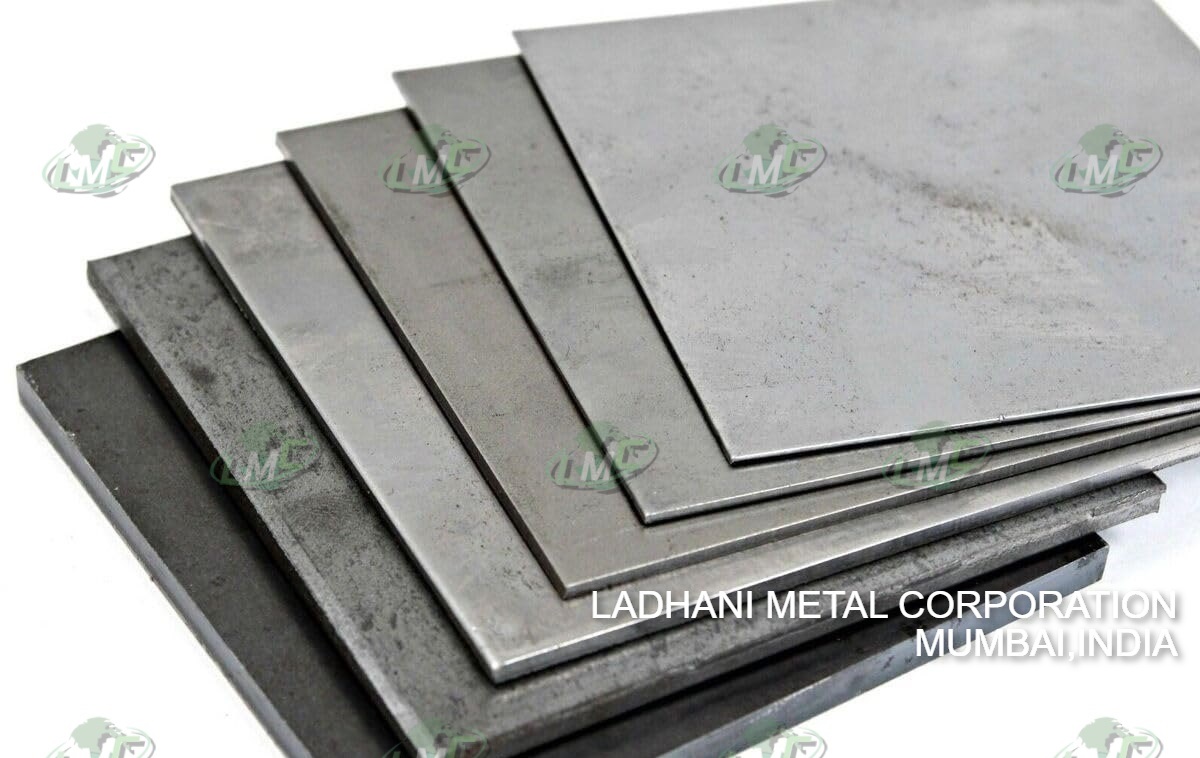IS 6911 SS Sheet, Plate & Coil
Ladhani Metal Corporation, a manufacturer, supplier, and exporter, offers stainless steel sheets, plates, and coils in grade X10Cr18Mn9Ni5 as per IS 6911 specifications. X10Cr18Mn9Ni5 is an austenitic stainless steel grade with a balanced composition of chromium, manganese, and nickel, designed to provide excellent corrosion resistance, high strength, and superior toughness. The addition of manganese enhances mechanical properties, while nickel stabilizes the austenitic structure, making this grade suitable for critical industrial environments.
Chemical Composition of X10Cr18Mn9Ni5 (as per IS 6911)
• Carbon (C): 0.10% max
• Manganese (Mn): 8.0% – 10.0%
• Silicon (Si): 1.0% max
• Phosphorus (P): 0.040% max
• Sulphur (S): 0.030% max
• Chromium (Cr): 17.0% – 19.0%
• Nickel (Ni): 4.0% – 6.0%
Functions and Characteristics
• Excellent corrosion resistance in oxidizing and mildly reducing environments
• Good resistance to intergranular corrosion and stress corrosion cracking
• Manganese improves tensile strength and toughness
• Retains mechanical properties at both high and low temperatures
• Non-magnetic in the annealed condition with excellent weldability and formability
Applications
• Power Generation – Heat exchangers, boilers, and turbine components
• Oil and Gas – Offshore platforms, pipelines, and subsea equipment
• Petrochemical Industry – Process equipment, reactors, and refinery units
• Fertilizer Plants – Components exposed to chemical corrosion and high wear
• Chemical Industry – Storage tanks, pressure vessels, and process pipelines
• Marine Engineering – Seawater systems, ship components, and offshore rigs
• Automotive Industry – Exhaust systems, clamps, and high-performance components
• Food Processing – Hygienic processing equipment and storage tanks
• Construction – Structural frameworks, cladding, and architectural elements
• General Engineering – Fasteners, shafts, and machine parts requiring toughness and durability
Available Forms
• Stainless steel sheets
• Stainless steel plates
• Stainless steel coils
Grades Available under IS 6911
Apart from X10Cr18Mn9Ni5, IS 6911 also covers a wide range of stainless steel grades, including X04Cr12, X07Cr17, X12Cr12, X20Cr13, X30Cr13, X40Cr13, X15Cr16Ni2, X108Cr17Mo, X10Cr17Mn6Ni4N2O, X07Cr11Mn12Ni4, X30Cr17Ni7, X07Cr18Ni9, X04Cr19Ni9, X02Cr19Ni10, X15Cr24Ni13, X20Cr25Ni20, X04Cr17Ni12Mo2, X02Cr17Ni12Mo2, X04Cr17Ni12Mo2Ti, X04Cr18Ni10Ti, X04Cr18Ni10Nb and other specified grades.
Conclusion
IS 6911 SS X10Cr18Mn9Ni5 sheets, plates, and coils offered by Ladhani Metal Corporation, a manufacturer, supplier, and exporter, deliver a unique combination of high strength, toughness, and corrosion resistance, making them ideal for applications in marine, petrochemical, and power generation industries. With availability in multiple grades as per IS 6911, we provide stainless steel solutions that meet both domestic and international standards.
For inquiries or project requirements, contact Ladhani Metal Corporation.
#Mumbai #Delhi #Chennai #Kolkata #Hyderabad #Bangalore #Pune #Ahmedabad #Surat #Rajkot #Vadodara #Coimbatore #Jaipur #Nagpur #Indore #Ludhiana #Kanpur #Bhubaneswar #Rourkela #Visakhapatnam #Trichy #Kochi #Mangalore #Jamnagar #Bharuch #Vapi #Hazira #Ankleshwar #Durgapur #Jamshedpur #Raipur #Bilaspur #Faridabad #Noida #Gurgaon #Chandigarh #Lucknow #Bhopal #Patna #Guwahati #Agra #Varanasi #Meerut #Ghaziabad #Moradabad #Aligarh #Aurangabad #Kolhapur #Nashik #Solapur #Thane #Amravati #Satara #Sangli #Hubli #Belgaum #Davangere #Mysore #Erode #Salem #Madurai #Tirunelveli #Tuticorin #Hosur #Nellore #Warangal #Karimnagar #Nanded #Udaipur #Ajmer #Jodhpur #Kota #Alwar #Gwalior #Rewa #Jhansi #IS6911sheetmanufacturer #IS6911sheet supplier # IS6911sheetexporter #IS6911 #IS6911StainlessSteel #IS6911Sheet #IS6911Plate #IS6911Coil #IS6911Strip #IS6911Manufacturer #IS6911Supplier #IS6911Exporter #StainlessSteelIndia #StainlessSteelSheet #StainlessSteelPlate #StainlessSteelCoil #StainlessSteelStrip #SS304 #SS304L #SS316 #SS316L #X04Cr12 #X07Cr17 #X12Cr12 #X20Cr13 #X30Cr13 #X40Cr13 #X15Cr16Ni2 #X108Cr17Mo #X07Cr18Ni9 #X04Cr19Ni9 #X02Cr19Ni10 #X15Cr24Ni13 #X20Cr25Ni20 #X04Cr17Ni12Mo2 #X02Cr17Ni12Mo2 #X04Cr17Ni12Mo2Ti #X04Cr18Ni10Ti #X04Cr18Ni10Nb #StainlessSteelGrades #StainlessSteelManufacturer #StainlessSteelSupplier #StainlessSteelExporter #StainlessSteelStockist #IndustrialStainlessSteel #BoilerStainlessSteel #PetrochemicalStainlessSteel #ChemicalIndustryStainlessSteel #MarineStainlessSteel #HeatResistantSteel #CorrosionResistantSteel #SSSheetsPlatesCoils #LadhaniMetalCorporation
Send
Message

